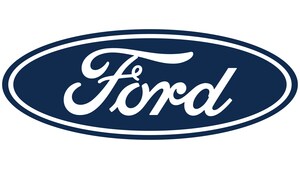New 2011 Ford Super Duty Power Stroke Diesel Offers Customers More Fueling Choices
DEARBORN, Mich., March 17 /PRNewswire-FirstCall/ --
- The all-new Ford-engineered and Ford-built 6.7-liter Power Stroke® V-8 turbocharged diesel engine available in the 2011 Ford F-Series Super Duty is B20 biodiesel compatible. This increased biodiesel compatibility gives customers more fueling choices
- Diesel engines account for 65 percent of Super Duty sales; the new diesel enables class-leading towing capability of 26,400 pounds on chassis cabs and 24,400 pounds on pickups, which is vital to Super Duty customers, 97 percent of whom tow
- National Biodiesel Day is held March 18, the birth date of Rudolf Diesel – the man who invented the diesel engine
As diesel fans around the world anticipate National Biodiesel Day on March 18, the birthday of the famed engine inventor, Rudolf Diesel, Ford readies for customers the new 2011 Super Duty and its all-new 6.7-liter Power Stroke V-8 turbocharged diesel engine with unsurpassed biodiesel compatibility.
The new diesel engine, available in the 2011 Ford F-Series Super Duty, is B20 compatible, which allows customers an additional fueling option that uses blends of up to 20 percent biodiesel and 80 percent petroleum diesel. Biodiesel is a type of diesel fuel that is derived from renewable energy sources and feedstocks, such as vegetable oils and animal fats.
This additional fueling flexibility is important to a wide range of customers. Renewable, biodegradable fuels are especially vital in the agricultural segment, where biodiesel is often the preferred fuel.
Nationally, government fleet customers and energy providers must comply with the Energy Policy Act (EPACT) of 1992, which mandates that a certain percentage of new vehicle purchases have alternative fuel capability. Additionally, certain states and municipalities offer credits or incentives that encourage B20 use, making it an attractive alternative.
According to biodiesel.org, the 500 million gallons of fuel the U.S. biodiesel industry produced in 2007 offset nearly 12 million barrels of oil. The organization also reported that a recent study concluded that in 2007 alone, the biodiesel industry supported more than 21,000 jobs and added more than $4 billion to the nation's Gross Domestic Product (GDP).
New diesel engine's extreme durability testing
During the Super Duty's development, engineers put more than 10.3 million equivalent test miles on the new diesel engine, including extreme road and weather conditions. The new Power Stroke diesel is the most tested Power Stroke ever, incorporating the most rigorous engine tests found in Ford globally.
Customer data, including driving styles, road types and vehicle usage (towing and payload), also played a key role in developing the testing program that best replicated Super Duty use.
Components were tested in the laboratory with a regimen designed to exceed what even the most extreme-use customer might dish out. Engines literally ran continuously for hundreds of hours.
This strict testing work helped ensure the new engine is B20 compatible. Because biodiesel fuel varies in quality in the U.S. and Canada, durability testing cycles were run on multiple blends of the fuel to ensure the robustness of the system. Engine components that are not compatible with B20 will suffer premature wear or corrosion and will have a high potential for leaks if the sealing components are not compatible with biofuels.
Specific steps for B20 compatibility
To address the challenges presented by biodiesel, the engineering team performed a complete review of biodiesel fuel properties (history and lessons learned) and examined the effects on each system, subsystem and component of the engine and vehicle to determine how best to design and test each component. Ford's multifaceted approach included extensive testing on the dynamometer, the vehicle and in the laboratory to ensure compatibility.
"The entire vehicle was extensively tested on B20 to ensure compatibility of the vehicle fuel system components, including fuel filters, lines and connections," said Ed Waszczenko, lead diesel engine durability engineer. "Each component that is exposed to the fuel was tested in a 'worst case' proprietary fuel mixture to prove compatibility and durability."
Customers who opt for the more environmentally friendly fuel can rest assured they will receive top performance. The new 6.7-liter Power Stroke V-8 turbocharged diesel engine is rated at a significantly improved 735 ft.-lb. of torque at 1,600 rpm and 390 horsepower at 2,800 rpm.
"The customer will not see any degradation in performance with biofuels up to B20," Waszczenko said. "Also, testing was conducted to simulate how some customers will use biofuels. This included switching from normal diesel fuel to B20 fuel, just like a customer might do."
This increased flexibility is an important component of the new engine.
"Diesel engines account for 65 percent of Super Duty sales," said Doug Scott, Truck Group marketing manager. "Increased biodiesel compatibility is something many of our customers have been looking for."
"The 2011 Ford F-Series Super Duty is all about meeting and exceeding customer demands across a wide range with the 'and solution,'" said Scott. "Ford delivers best-in-class maximum capability and best-in-class fuel economy, with an average 18 percent improvement among diesel pickups and 25 percent improvement in diesel chassis cabs compared with 2010 models, and B20 compatibility."
A Little About the Man Who Started it All: Meet Rudolf Diesel
Here is some information about Rudolf Diesel from a news release from www.biodiesel.org:
No other engine inventor’s name is as closely tied to his engine as Rudolf Diesel’s is. But Diesel worked hard to make it that way. Diesel started his education in Paris and spent most of his time in the museum of arts and crafts. The outbreak of the Franco-Prussian War forced him to leave Paris and go to London. He later studied in Munich under the German chemist Carl Von Linde. He invented the refrigeration system used now in many electrical refrigerators. Diesel grew to become a very important engineer and inventor.
He attempted to find better ways to use steam as the working fluid in heat engines. His patents in 1892 and 1893 were not for the engine but for the cycle of an engine employing the compression-ignition technique. In this cycle there were four phases. He did not have one fully rolling until 1897.
Diesel attacked the problem of the compression-ignition engine not as a new concept but as a refinement of the gas engine invented by Nikolaus Otto in 1876. He spent the rest of his life introducing his invention to the world. He had many problems with manufacturing, licensing and financial stability.
On Sept. 29, 1913, Diesel vanished off the Harwich-Antwerp ferry crossing the channel to England and his body was never found. Since his death the diesel engine has been very helpful in manufacturing and transportation.
He originally designed the diesel engine to run on peanut oil. Only later did petroleum become the standard. In a 1912 speech, Diesel said “the use of vegetable oils for engine fuels may seem insignificant today, but such oils may become, in the course of time, as important as petroleum and the coal tar products of the present time.”
Diesel revised his original model and on Feb. 17, 1894, the new engine ran for more than a minute. It took nearly three years to produce a viable working model. The engine he produced had a mechanical efficiency of more than 75 percent where the steam engines of the time were operating on less than 10 percent.
About Ford Motor Company
Ford Motor Company (NYSE: F), a global automotive industry leader based in Dearborn, Mich., manufactures or distributes automobiles across six continents. With about 198,000 employees and about 90 plants worldwide, the company's automotive brands include Ford, Lincoln, Mercury and Volvo. The company provides financial services through Ford Motor Credit Company. For more information regarding Ford's products, please visit www.ford.com.
SOURCE Ford Motor Company
WANT YOUR COMPANY'S NEWS FEATURED ON PRNEWSWIRE.COM?
Newsrooms &
Influencers
Digital Media
Outlets
Journalists
Opted In






Share this article